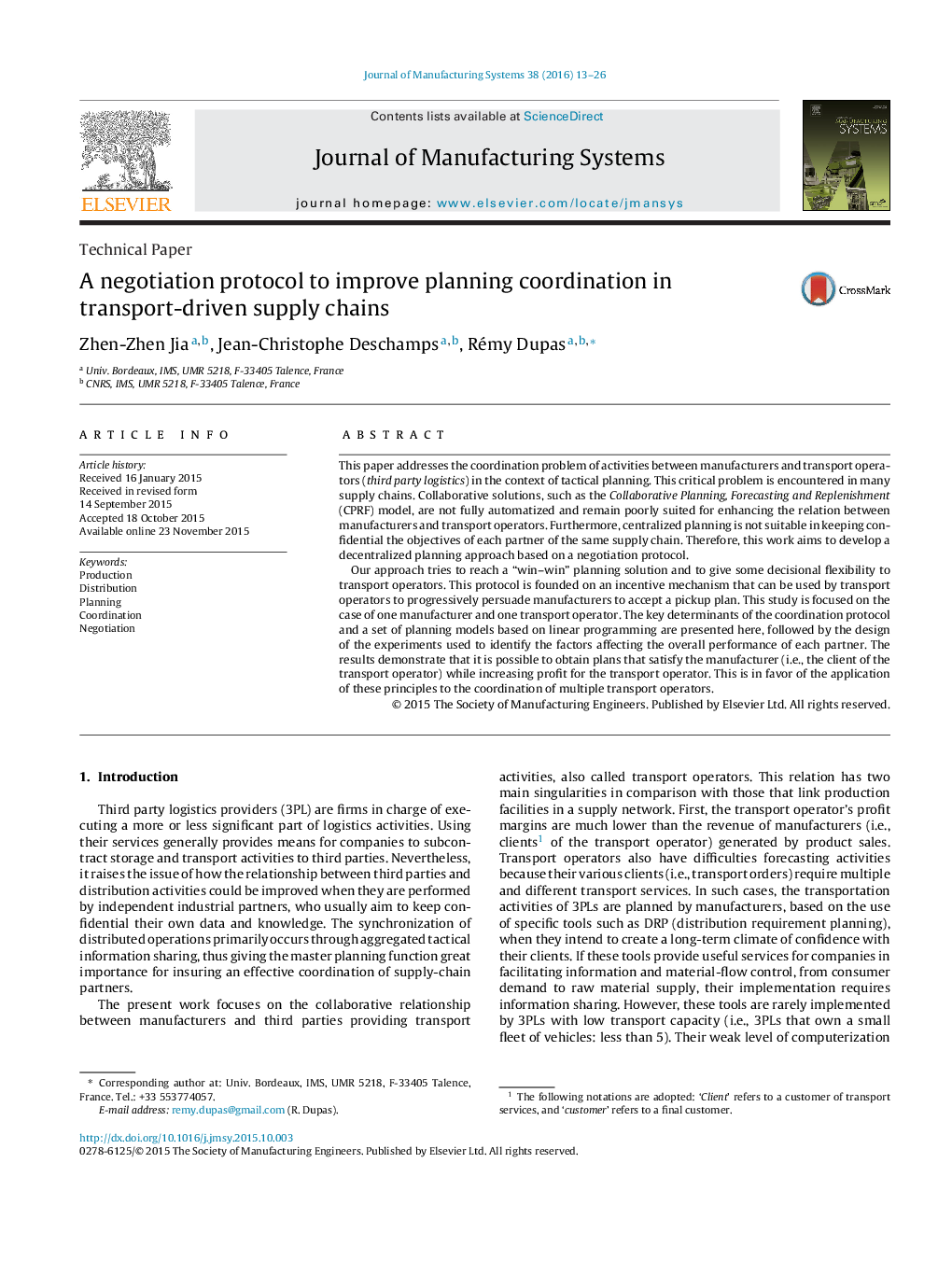| Article ID | Journal | Published Year | Pages | File Type |
|---|---|---|---|---|
| 1697375 | Journal of Manufacturing Systems | 2016 | 14 Pages |
•We address the collaboration problem between production and distribution at the tactical level.•A planning solution is searched through a win–win negotiation based on an original protocol.•The negotiation requires the exchange of tactical plans and it is encouraged by incentive mechanisms.•The negotiation effectiveness is assessed by simulation with a set of design of experiments.•The finding is that the transport operator's profit increases without worsen the manufacturer one.
This paper addresses the coordination problem of activities between manufacturers and transport operators (third party logistics) in the context of tactical planning. This critical problem is encountered in many supply chains. Collaborative solutions, such as the Collaborative Planning, Forecasting and Replenishment (CPRF) model, are not fully automatized and remain poorly suited for enhancing the relation between manufacturers and transport operators. Furthermore, centralized planning is not suitable in keeping confidential the objectives of each partner of the same supply chain. Therefore, this work aims to develop a decentralized planning approach based on a negotiation protocol.Our approach tries to reach a “win–win” planning solution and to give some decisional flexibility to transport operators. This protocol is founded on an incentive mechanism that can be used by transport operators to progressively persuade manufacturers to accept a pickup plan. This study is focused on the case of one manufacturer and one transport operator. The key determinants of the coordination protocol and a set of planning models based on linear programming are presented here, followed by the design of the experiments used to identify the factors affecting the overall performance of each partner. The results demonstrate that it is possible to obtain plans that satisfy the manufacturer (i.e., the client of the transport operator) while increasing profit for the transport operator. This is in favor of the application of these principles to the coordination of multiple transport operators.
